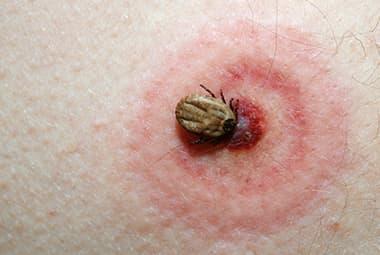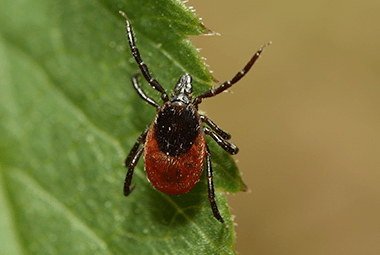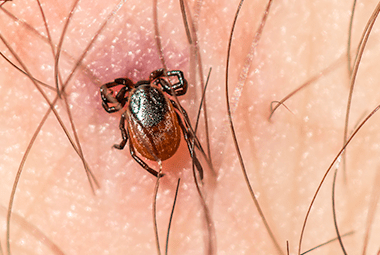In Tennessee, warm weather lasts longer than in some other states. Fall in Tennessee is the perfect season to be outdoors. But if you love picking apples or going on long fall hikes, you need to know about the dangers of black-legged ticks, also called deer ticks. These insects may be small, but they can cause a lot of trouble. You may have heard of Lyme disease, and Rocky Mountain Spotted Fever. And there are several other serious diseases that can come from tick bites. Here are the answers to some common questions you might have about ticks.
When are you most likely to get a tick bite?
Ticks live in nature and travel by attaching themselves to animals such as wildlife or pets. You’re most likely to find a tick bite after spending a long time outdoors. Hiking in wooded areas, camping, or even just playing in fields with tall grass can all be ways of exposing yourself to ticks. Ticks can also bite you in your own home or in your yard. They might get to your yard on your pet or on wildlife such as deer or raccoons. They could even get into your home on squirrels or mice.
Where are tick bites usually found?
Ticks can’t fly. You won’t find them falling on your head as you walk and they won’t jump off branches at you. Instead, they crawl on your feet or legs and travel upward onto your body. This means that you may be able to avoid them by wearing long pants that are light colored so you’ll see a tick when it gets on your leg. If you don’t see it, it will look for a moist, warm area such as your armpits, your groin, the back of your head, or in your hair. Ticks want to find a protected (which means hard-to-see) place to bite and then they attach themselves to you after they bite.
What does a tick bite feel like?
You might not notice a tick bite. The good news is that it’s very rare for the bite itself to cause any pain. The bad news is, this makes it harder to notice a tick bite than other insect bites. And the longer the tick remains attached to your skin, the more chance you have of contracting a tick-related disease. In some cases, a tick bite will itch, especially once the tick has been removed.
In order to remove a tick, grip the body with a good pair of tweezers as close to your skin as possible and pull directly out. It’s a bad idea to try to remove a tick with your fingers because they can break and get stuck inside your skin. If you’ve been bitten by a tick, it’s a good idea to see a doctor to make sure you didn’t pick up any serious diseases.
What does it mean if you have multiple tick bites?
If you have multiple tick bites, or if you constantly find new tick bites on your skin, you may have ticks in your home. As I mentioned earlier, ticks can come onto your property by riding in on wildlife or by arriving on your pets. They can’t live inside for long, but they’ll survive for a while if they can continue to get blood from you or your pets. If you keep finding tick bites, you should consider professional help.
Why call Russell’s Pest Control for tick management?
Russell’s Pest Control has experience in dealing with these difficult pets. We believe in a full treatment plan, which means that we’ll help you eliminate ticks long-term. To do this, we’ll identify factors that might be attracting ticks to your home. We’ll address a rodent problem or help you cut back on the number of wildlife coming onto your property. This will ensure that ticks don’t just vanish for a day, but that they have a hard time ever coming back to bother you.


